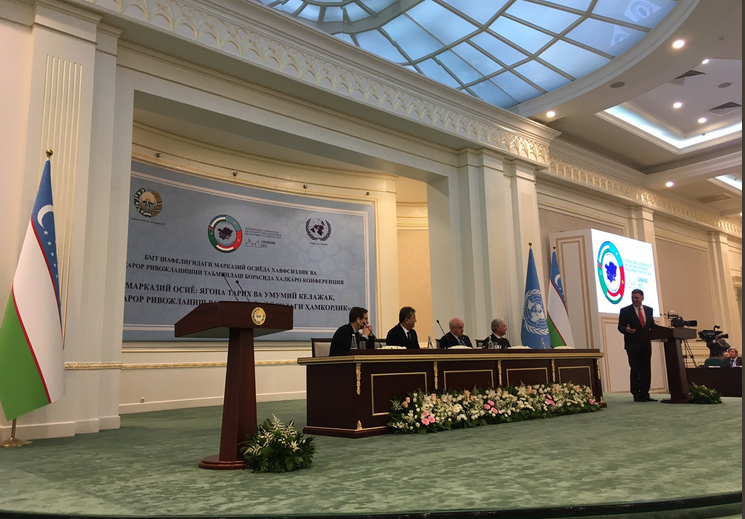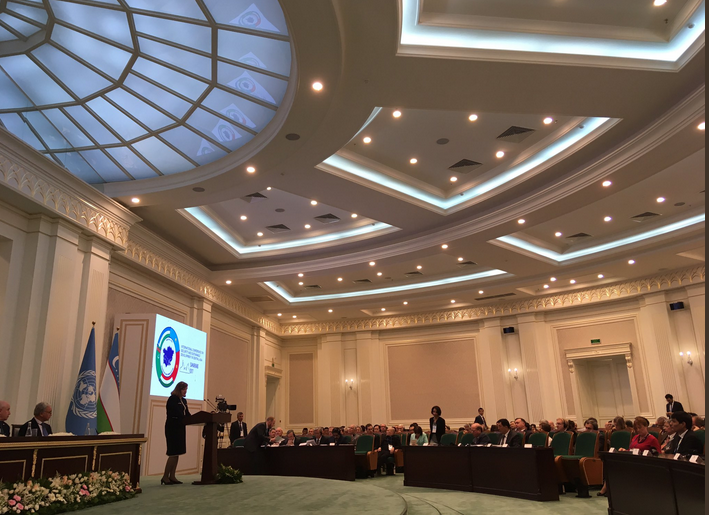Regional Security and Sustainable Development Conference starts in Samarkand
Tashkent, Uzbekistan: Two-Day conference titled “Central Asia: One Past and a Common Future, Cooperation for Sustainable Development and Mutual Prosperity” has started in historic city of Samarkand on Friday.
Participants of Conference talked about regional security in reference with security and stability in Afghanistan. The position of Pakistan regarding seeking peace in war-beaten Afghanistan was appreciated by participants while National Security Advisor (NSA) of Pakistan Lt. General (retd) Nasser Khan Janjua shared interest of Pakistan with all Central Asian States in achieving peace and stability in Afghanistan with focus on seeking expeditious closure of the conflict, rather than winning it. His speech was highly appreciated by the audience.
Addressing at inaugural ceremony, the President of Uzbekistan Shavkat Mirziyoyev has said that Central Asian countries must join hands to mitigate challenges and problems being faced by the region.
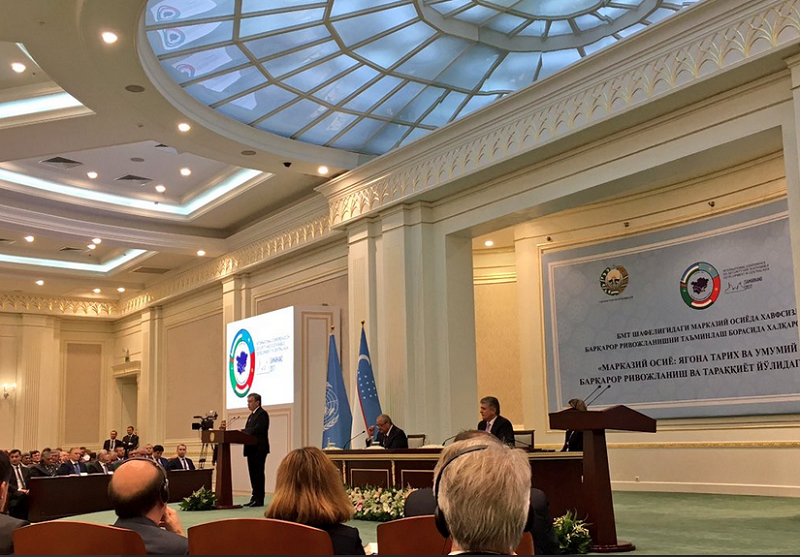
The host president was of the view that heads of states of Central Asian countries should meet at least once a year by organizing annual meeting of the heads of states of the countries of Central Asia.
President Mirziyoyev said that the solutions of pressing issues of Central Asia lie in uniting the efforts of the Central Asian countries on the basis of the principle of “Collective Responsibility”.
President Mirziyoyev mentioned that trade turnover of Uzbekistan with the regional countries grew in average by 20%, and almost by 70% with some countries since the beginning of this year.
He was of the view that regional problems can only be solved through regional consultation and through joint search for solutions to regional problems.
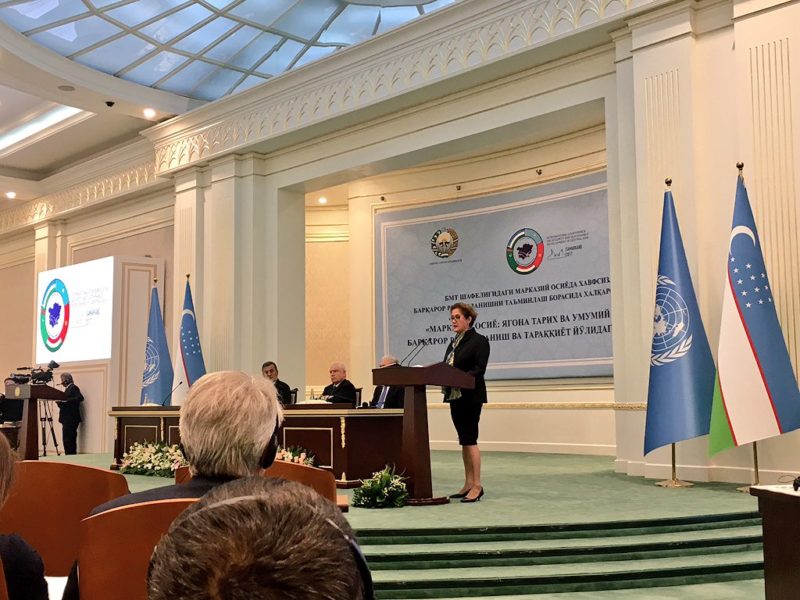
National Security Advisor (NSA) of Pakistan Lt. General (retd) Nasser Khan Janjua represented Pakistan and highlighted issues related with regional stability and security during his address.
He also highlighted historical linkages of Pakistan with Central Asian States in general and Uzbekistan in particular. He was of the view that there is (was) enormous potential for multi-faceted cooperation in all the areas. He also shared interest of Pakistan with all Central Asian States in achieving peace and stability in Afghanistan with focus on seeking expeditious closure of the conflict, rather than winning it. His speech was highly appreciated by the audience.
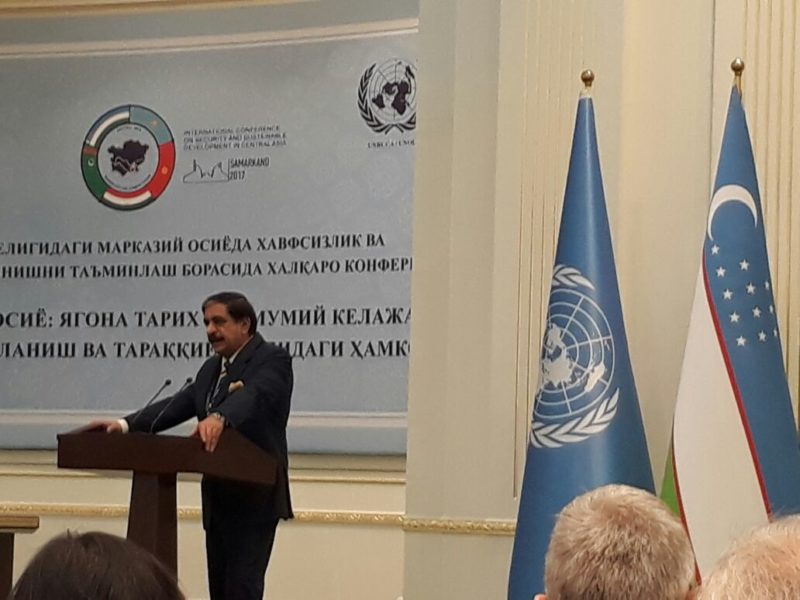
Secretary-General of the Shanghai Cooperation Organization (SCO) Rashid Alimov while addressing the inaugural session said that SCO has become a region of responsibility, which now includes India and Pakistan. He stated that major economic initiatives are being implemented and new unique opportunities for investors and businesses open up in SCO region.
He said that geographical proximity, good neighborly relations, economic interdependency of member-states contribute to the implementation of promising projects on developing infrastructure, transport and communications.
The Foreign Minister of Kazakhstan Kairat Abdrakhmanov while speaking at inaugural session said that the President of Kazakhstan Nursultan Nazarbayev believes that there is a need for setting up a new informal advisory platform to review regional issues.
Iranian Foreign Minister Mohammad Javad Zarif while addressing the first session stated that Iran religiously opposed to the production and use of such weapons of mass destruction. He demanded dismantling of weapons of mass destruction stating that weapons are destabilizing and undermining global security.
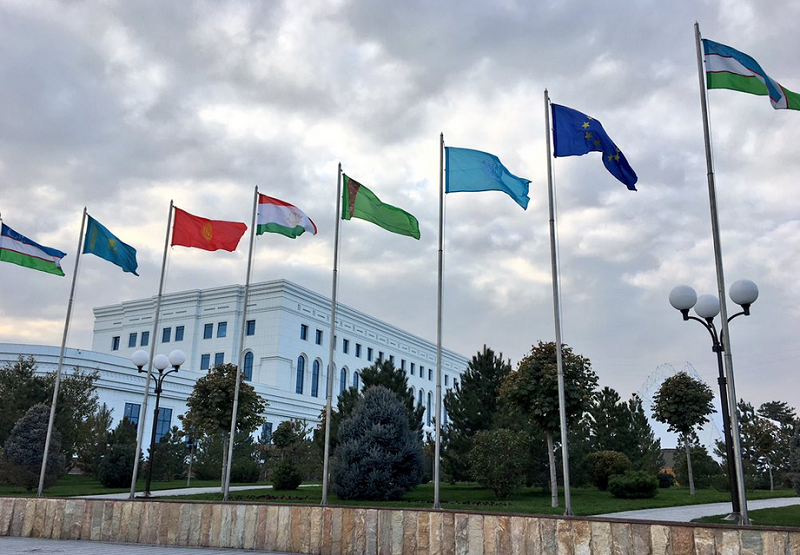
He added that the declaration of a nuclear-weapon-free zone in the Central Asian region is an action based on a sound understanding of security.
Correspondent from Islamabad adds
On the sidelines of the conference, the National Security Advisor (NSA) of Pakistan held important meetings with Mr. Abdulaziz Kamikov, Foreign Minister of Uzbekistan, Major General Makhmudov, Secretary of Uzbek National Security Council and leaders of participating delegations of China, Russia, USA and India.
Lt Gen Janjua will also hold bilateral meetings with Mr. Sodiq Safoyev, First Deputy Chairman of Uzbekistan’s Senate, Ambassador Vladimir Norov, Director of Institute of Strategic and Inter-regional Studies and will be delivering addresses at Islamic University of Tashkent as well as Armed Forces Academy of Uzbekistan.
It may be mentioned that the European Union (EU) will allocate €1.2 billion in support for sustainable development in Central Asia up to 2020. Before start of Development Conference, the EU Commissioner Neven Mimica said that EU is a key partner of Central Asian states EU is supporting initiatives and reforms that aim at job creation, private sector development, promotion of investments, good governance, water management, the provision of education and health services and border management.
It may be mentioned that Kazakhstan, Turkmenistan and Uzbekistan signed “Tripoint” contract to accept and respect geographical boundaries of each other.
The signing ceremony took place on the margins of conference.
It is pertinent to mention that the agreement between Kazakhstan and Turkmenistan on delimitation and the process of demarcation of the Kazakh-Turkmen state border was signed on July 5, 2001; the agreement between Kazakhstan and Turkmenistan on the demarcation of the Kazakh-Turkmen state border was later signed on April 18, 2017.
The agreement between Kazakhstan and Uzbekistan on Kazakh-Uzbek state borders was signed on November 16, 2001; the treaty on certain sections of the Kazakh-Uzbek state border was signed on September 9, 2002.
Previously, the Uzbek and Kyrgyz Foreign Ministers Abdulaziz Kamilov and Erlan Abdyldaev signed the agreement on the settlement of 85 percent of the borderline, within a visit of the Kyrgyz President Almazbek Atambayev to Tashkent, reports Trend News Agency.
The other 15 percent (217 kilometers) are expected to be settled in December 2017.

